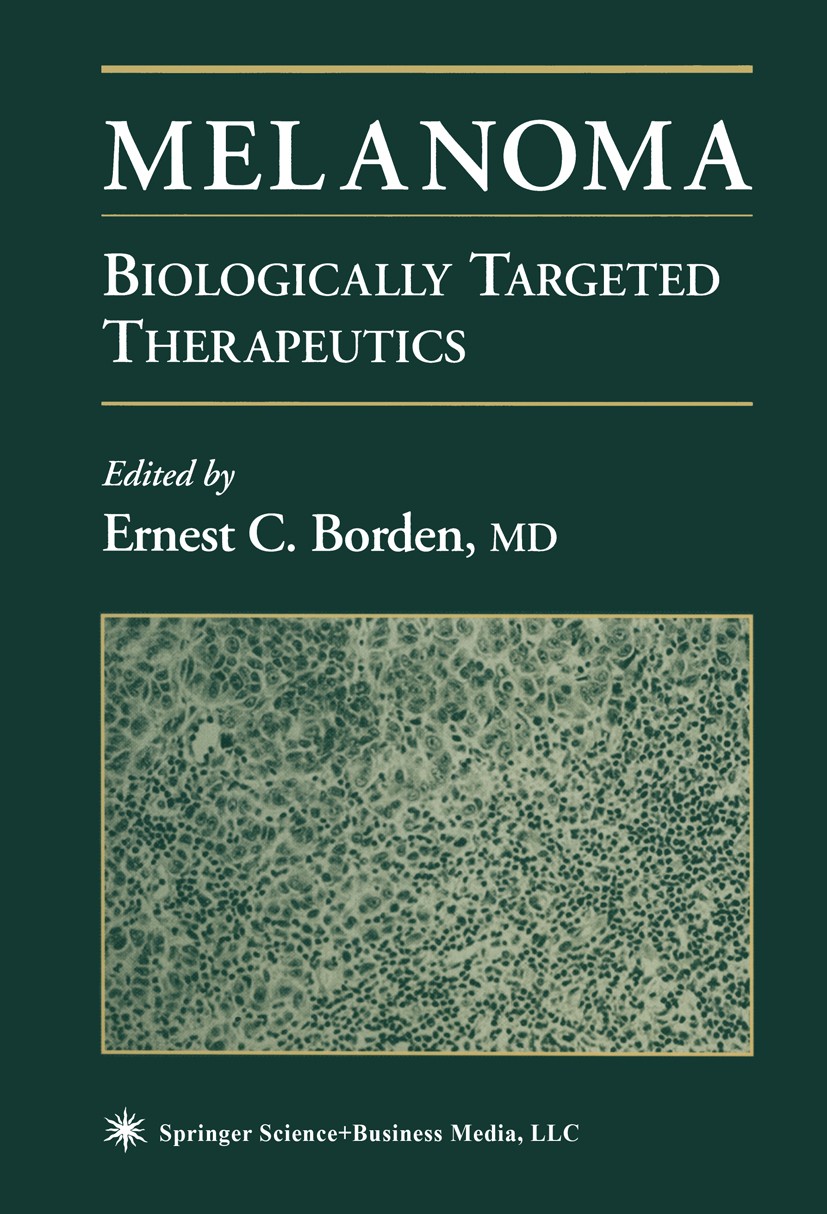| 书目名称 | Melanoma |
| 副标题 | Biologically Targete |
| 编辑 | Ernest C. Borden (Director) |
| 视频video | http://file.papertrans.cn/631/630292/630292.mp4 |
| 概述 | Includes supplementary material: |
| 丛书名称 | Current Clinical Oncology |
| 图书封面 |  |
| 描述 | Strategies of treatment involving therapeutic proteins, irnrnune immune cells, or cel lular protein targets are those of greatest potential for further reducing mortality from melanoma. Therapeutic proteins or cells may inhibit melanoma cell growth either by augmentation of immune cell function or by inhibition of angiogenesis. Cytokines and melanoma antigens may be used either in vivo as a vaccine to stimulate irnrnune immune cell cell function or ex vivo to stimulate or proliferate cells for infusion. Alternatively, alteration in melanoma cell growth can occur through inhibition of protein signal transduction pathways within melanoma cells or in the endothelial cells constituting the necessary angiogenic support for tumor growth. The great promise of these therapies and their cellular targets constitutes the basis for Melanoma: Biologically Targeted Therapeutics. THE CLINlCAL PROBLEM More than four million people will be diagnosed with melanoma in the first decade of the 21st century. Half of those who will die will be individuals who would otherwise have had a life expectancy of another 25 years or more. These individuals will die of systemic systernic metastases, which are pre |
| 出版日期 | Book 2002 |
| 关键词 | Staging; angiogenesis; metastatic disease; surgery; tumor growth |
| 版次 | 1 |
| doi | https://doi.org/10.1007/978-1-59259-159-6 |
| isbn_softcover | 978-1-4684-9668-0 |
| isbn_ebook | 978-1-59259-159-6Series ISSN 2364-1134 Series E-ISSN 2364-1142 |
| issn_series | 2364-1134 |
| copyright | Springer Science+Business Media New York 2002 |
 |Archiver|手机版|小黑屋|
派博传思国际
( 京公网安备110108008328)
GMT+8, 2026-1-16 00:38
|Archiver|手机版|小黑屋|
派博传思国际
( 京公网安备110108008328)
GMT+8, 2026-1-16 00:38


